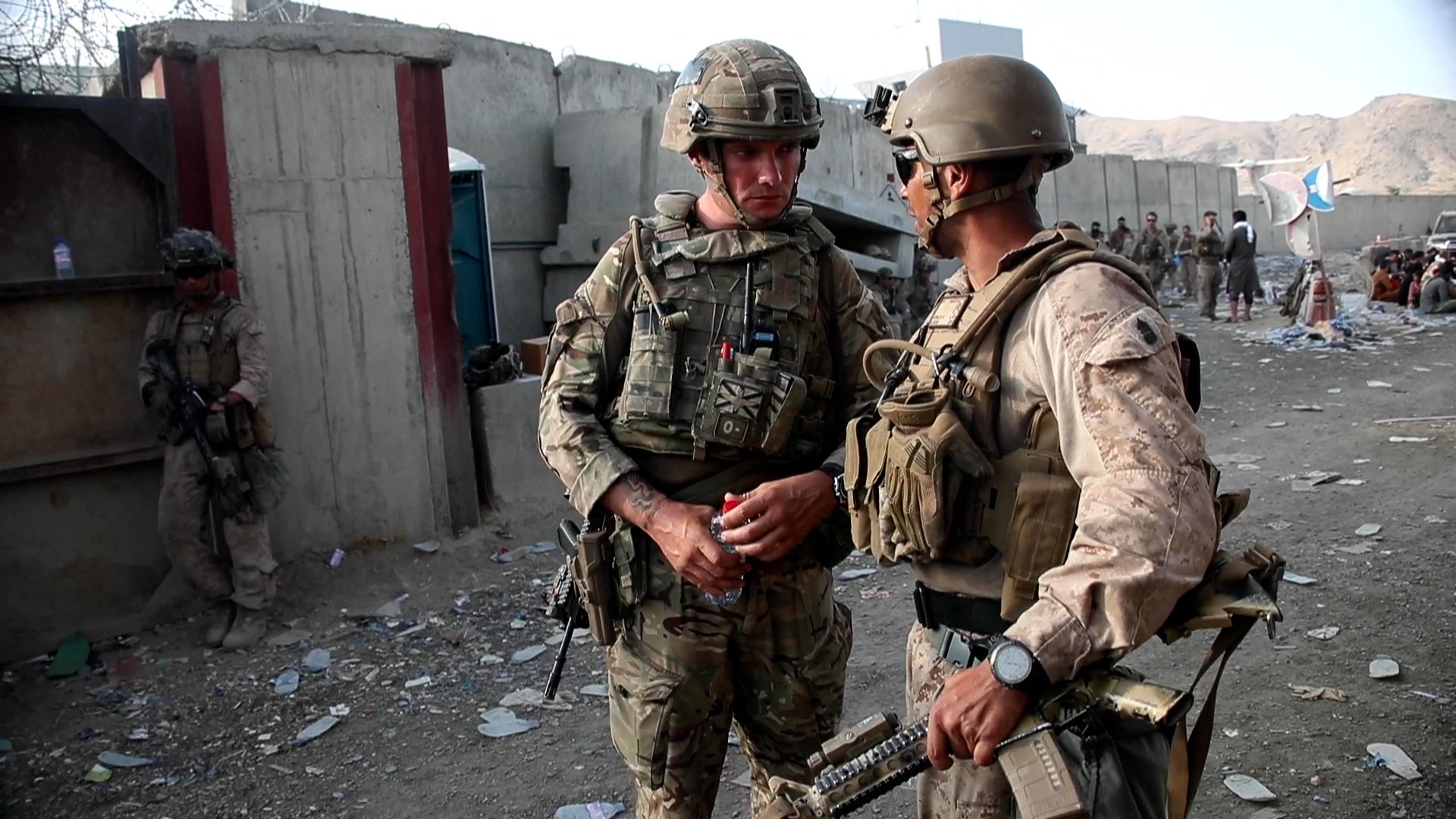If British troops can’t stay in Afghanistan without the US, we should be asking why
No one is suggesting sending fighting patrols out into the streets of Kabul – just keeping the airhead operating for a few extra days, in order to get those for whom we have a responsibility out safely

Your support helps us to tell the story
From reproductive rights to climate change to Big Tech, The Independent is on the ground when the story is developing. Whether it's investigating the financials of Elon Musk's pro-Trump PAC or producing our latest documentary, 'The A Word', which shines a light on the American women fighting for reproductive rights, we know how important it is to parse out the facts from the messaging.
At such a critical moment in US history, we need reporters on the ground. Your donation allows us to keep sending journalists to speak to both sides of the story.
The Independent is trusted by Americans across the entire political spectrum. And unlike many other quality news outlets, we choose not to lock Americans out of our reporting and analysis with paywalls. We believe quality journalism should be available to everyone, paid for by those who can afford it.
Your support makes all the difference.There is still much debate about whether the US will pull out all its people from Kabul airport by 31 August, or extend that deadline by a week or so. But it is clear from all the statements from Downing Street (and elsewhere in Whitehall) that if Joe Biden does give the nod to US troops to pull out, then the British army will also leave – even though that would mean abandoning people.
Despite the fact that the UK spends tens of billions of pounds every year on defence, the equivalent of around $70bn – second only to the USA in Nato – the Ministry of Defence is ruling out remaining in Afghanistan without the US, warning it would be too dangerous and that “without this partnership, it would be impractical to secure the airport and continue the evacuation mission”.
This position is being supported by some “security experts”, who say that it is rather naive to believe otherwise.
Armed forces minister James Heappey says that Taliban thugs will “get a vote” on when Britain must make its last evacuation flight out of Kabul – adding that “even the planet’s most powerful countries can’t realistically stay in Afghanistan without the militants’ say-so”.
Kabul is not, of course, a benign environment, which is why we have already deployed military capabilities – and the enemy always gets a vote in any military operation. But there are always levers available – in this case, financial.
However, Heappey then said that while of course we have the military force that would be required if we wanted to stay, as we can probably imagine, the sort of humanitarian mission we’re involved in is not one that would be helped by the international community fighting the Taliban on the streets – “therefore I’m not sure that it’s something we should really be considering”, Heappey said.
No one is suggesting sending fighting patrols out into the streets of Kabul – just keeping the airhead operating for a few extra days, in order to get those for whom we have a responsibility out safely.
The ink is hardly dry on two major post-Brexit policy papers the government published earlier this year – the Integrated Review and the Defence Command Paper – following their claims about a post-Brexit “Global Britain”.
Among our armed forces we have formations such as the 16 Air Assault Brigade – elements of which are already deployed into Kabul airfield – 3 Commando Brigade, the Ranger Brigade, the RAF regiment, RAF air-traffic controllers and joint army/RAF movement controllers, all alongside other capabilities such as logisticians and engineers. Yet we now find ourselves in a situation where we apparently cannot take on the operation of running a single airfield.
At the end of the day, this all comes down to confidence and leadership. Alongside other examples, we know the flavour of the conversations that went on in Downing Street in 1982, until the then first sea lord intervened, and the PM made the decision that something could – and should – be done. And it was!
If the government and our current senior military leaders genuinely believe that they can’t do this alone, then I think it is a very fair question to ask why not – and, if it is indeed the case, what needs to change?
Major General Tim Cross served in the Gulf war, the Iraq war, Northern Ireland and the Balkans, where one of his tasks was to deal with the humanitarian crisis in Kosovo
Join our commenting forum
Join thought-provoking conversations, follow other Independent readers and see their replies
Comments